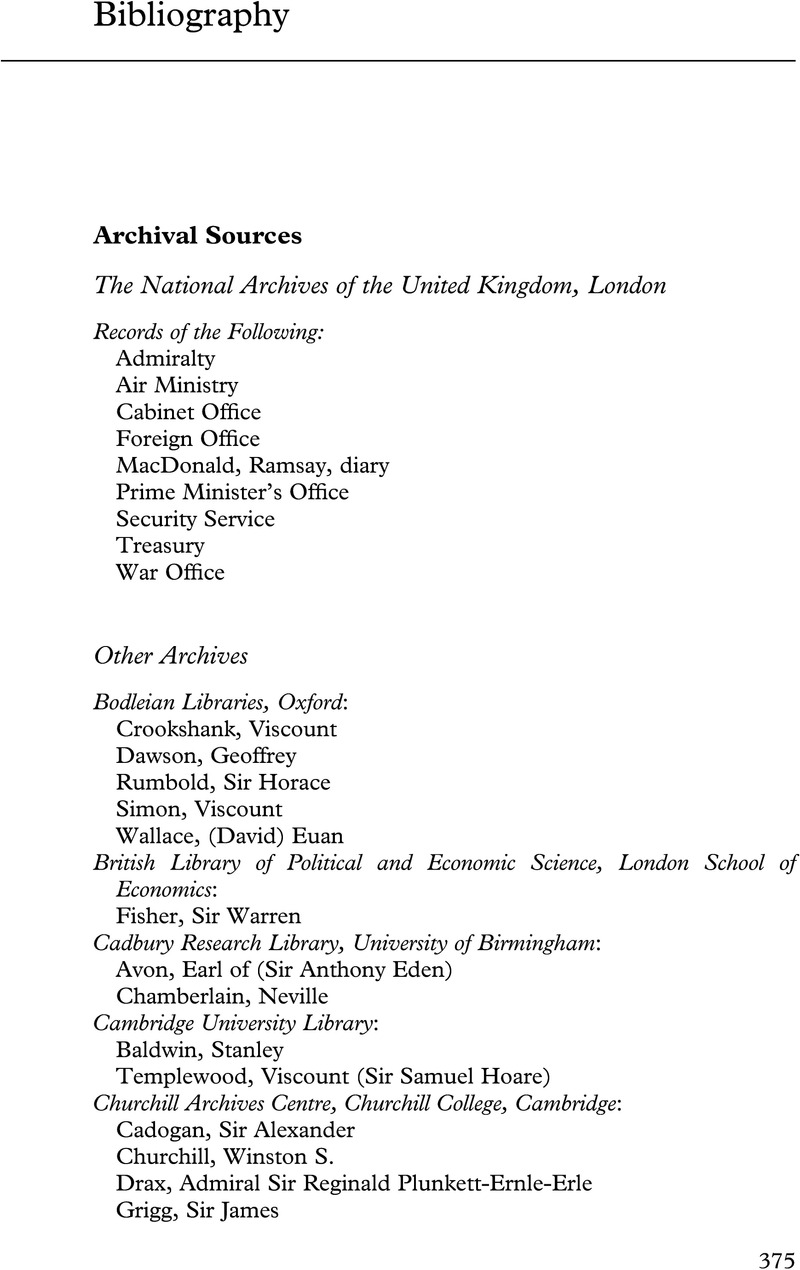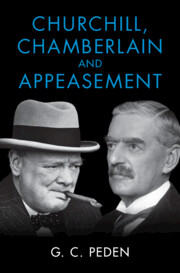Book contents
- Churchill, Chamberlain and Appeasement
- Churchill, Chamberlain and Appeasement
- Copyright page
- Contents
- Figures
- Tables
- Acknowledgements
- Abbreviations
- Introduction
- 1 Churchill, Chamberlain and Historians
- 2 Personalities and Policymaking
- 3 Britain and the Balance of Power
- 4 The Darkening Scene
- 5 The Ethiopian and Rhineland Crises
- 6 Chamberlain Takes Charge
- 7 From the Anschluss to Munich
- 8 From Munich to Prague
- 9 Deterrence by Guarantee
- 10 The Test of War
- 11 Counterfactuals and Conclusions
- Notes
- Bibliography
- Index
- References
Bibliography
Published online by Cambridge University Press: 11 November 2022
- Churchill, Chamberlain and Appeasement
- Churchill, Chamberlain and Appeasement
- Copyright page
- Contents
- Figures
- Tables
- Acknowledgements
- Abbreviations
- Introduction
- 1 Churchill, Chamberlain and Historians
- 2 Personalities and Policymaking
- 3 Britain and the Balance of Power
- 4 The Darkening Scene
- 5 The Ethiopian and Rhineland Crises
- 6 Chamberlain Takes Charge
- 7 From the Anschluss to Munich
- 8 From Munich to Prague
- 9 Deterrence by Guarantee
- 10 The Test of War
- 11 Counterfactuals and Conclusions
- Notes
- Bibliography
- Index
- References
Summary

- Type
- Chapter
- Information
- Churchill, Chamberlain and Appeasement , pp. 375 - 398Publisher: Cambridge University PressPrint publication year: 2022



